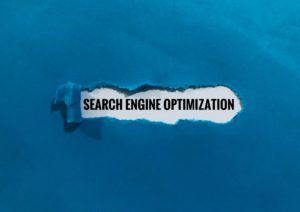Why Cloud Computing and Cloud Migration are Important for Business?
Now, Cloud Adoption is more common due to its benefits. Do You agree?
The aim of application migration services is to help businesses migrate their apps to the cloud to improve their availability, scalability, and resilience. Zimozi provides custom Application Migration Services and cloud solutions in Singapore, Australia, and India. Among the most common implementation options are the public/private cloud, multi-cloud, and hybrid cloud. Approach us, if you are looking for the best SaaS Solution Providers in Singapore, India, and Australia.
Before we discuss this further let us educate ourselves with
What is Cloud?
What is Cloud Computing?
Why Cloud Computing?
Types Of Cloud Computing
Cloud Providers
What is Cloud?
Servers that are accessed over the Internet and the software and databases that run on those servers are referred to as Cloud. Simply Cloud is a Network.
What is Cloud Computing?
Cloud Computing is the delivery of on-demand Computing services over the internet on pay as you go basis. Rather than managing files on the local storage device, Cloud computing makes it possible to store them over the internet.
Why Cloud Computing?
The challenges of an on-premises environment led to Cloud computing
Pay high and fewer scalability-On-Premises Storage setup requires a greater capital investment to purchase the servers and other pieces of hardware to get it running. It’s more difficult to scale your on-premises servers quickly as it requires you to install new hardware and devote manpower to building the new systems.
Huge space allotted for servers- You need a highly secured room space for a server setup. Security and maintenance are also required and again the cost is increased.
Manpower for hardware and software maintenance- On-Premises Storage needs more IT staff to maintain and manage the servers. This support adds to your cost and reduces efficiency.
Poor data security- On On-premises storage the data is stored in-house as well as the knowledge of the system. Organizations have complete ownership of their data. Losing data will abolish the efficiency and reputation of your company. Data is the spine of your company. A malfunction in the system can cause you to lose your data permanently in on-premises storage.
Less chance of data recovery- As the backup data is stored only in a physical space, it’s at risk in the event of a disaster such as a fire or a flood. Recovery time can also be an issue. Depending on the type of solution, it can take hours or even weeks to retrieve the data.
No automatic updates – Regular updates to your system may be costly and could take time and effort to install. There are no automatic updates and the updates may require hardware and software changes and will involve the IT team to execute.
Lack of flexibility- When you purchase and maintain your own infrastructure, the upfront costs can restrict the flexibility of your on-premise infrastructure. To justify the expense of any equipment you purchase, you’ll have to stick with that infrastructure equipment for a long time.
Data cannot be accessed remotely- Workers cannot connect from anywhere as the data cannot be accessed remotely.
Takes longer implementation time- On-Premise takes longer implementation time due to the complete installation on servers and each individual’s devices.
Types of Cloud Computing

Deployment Model of Cloud Computing
Public Cloud
Accessible to everyone
The cloud infrastructure is made available to the general public over the internet and owned by a cloud provider.
Example: AWS, Microsoft azure

Private Cloud
Owned by a Single Person
The cloud infrastructure is extremely operated by a single organization. It can be managed by an organization or a third party and may exist on-premise or off-premise.
Example: VMware, AWS

Hybrid Cloud
Rented Owner
It has the functionalities of both Private Cloud and Public Cloud.

Service Model Of Cloud Computing
IaaS-Infrastructure as a Service
If your business needs a virtual machine, then go for Infrastructure as a Service. It is a cloud service that provides basic Computing infrastructure. Services are available for pay for what you use.
PaaS-Platform as a service
If your business requires a platform for building software products, then go for a Platform as a service. PaaS provides a cloud platform and runtime environment for developing, testing, and managing applications. It allows software developers to deploy applications without requiring all related infrastructure.
SaaS-Software as a service
If your business doesn’t want to maintain IT equipment, then go for Software as a Service. In SaaS, Cloud providers host and manage the software application on a Pay as you use option. All software and hardware are provided and managed by a vendor so you don’t have to maintain anything.
Difference between IaaS, PaaS, SaaS

Features of cloud computing
Resource Pooling: Here, the cloud providers share the resources with multiple users, each providing a different set of services according to their needs. The users have no control or information over the location of the provided resources but can specify the location.
On-Demand Self-Service: It is an essential feature of cloud computing. Here, the user can continuously monitor server uptime, storage, and functionalities. This helps users to make better decisions and makes them responsible for their consumption. The resources are used effectively based on their needs and requirements.
Easy Maintenance: Servers in the cloud are easily maintained with minimum or no cost. Maintenance is carried out with an automated process and is becoming easier and more economical. In order to optimize the server’s capabilities and potential resources often undergo several updates.
Broad Network Access: The user can access cloud data or transfer data to the cloud from any location with a device and internet connection. It is one of the most interesting features of cloud computing is that it knows no geographical boundaries.
Scalability and Rapid Elasticity: One of the most versatile features of Cloud Computing is that it is scalable. Scalability is the ability of the system to handle the growing amount of work by adding resources to the system. Continuous business expansion demands a rapid expansion of cloud services. Scalability also adds a cost-effective dimension and makes it suitable for business use.
Automatic System: The ability of cloud computing to automatically install, configure and maintain a cloud service is known as automation in cloud computing. Everything, from configuration to maintenance and monitoring, is most of the time automated. Automation is a great characteristic of cloud computing and is very much responsible for the increase in demand and rapid expansion of cloud services.
Economical: Cloud computing reduces the expenditure of an organization. In cloud computing, clients need to pay the administration for the space used by them. There is no cover-up or additional charges that need to be paid. They don’t even have to worry about extra costs such as power cost, maintenance, and repair.
Security: Cloud services make a copy of the stored data to prevent any kind of data loss. If one server loses data by any chance, the copied version is restored from the other server.
Pay as you Go: It is one of the versatile features of Cloud computing. Here, the user has to pay only for the service or the space they have utilized. There is no hidden or extra charge which is to be paid.
Measured Service: Cloud resources and services such as storage, bandwidth, processing power, networking capabilities, intelligence, software and services, development tools, analytics, etc. used by the consumer are monitored and analyzed by the service providers.

Cloud Service Providers
Various services such as Software as a Service, Platform as a service, Infrastructure as a service, network services, business applications, mobile applications, and infrastructure in the cloud are offered by Cloud Service Providers. The users can access these services through cloud provider companies using an Internet connection.
The best cloud for your company depends on your business needs, the size of your business, your current computing platform, and your IT infrastructure.
Some Of the Cloud Service Providers

What is Cloud Migration?
Cloud migration is the process of moving data, applications, and other business components from an on-premises environment to a cloud computing platform. The main benefits of cloud migration are improved scalability, availability, and security.
Purpose of Application Migration Services
Zimozi also engages in cloud migration services.
We support
-Large enterprises who are looking to improve their IT infrastructure and move to a more modern, cloud-based system
-Small businesses who want to take advantage of the scalability and flexibility of the cloud
-Startups who need to quickly launch their product or service on a reliable platform
-Government agencies and organizations who need to comply with regulations or mandates around data storage and security
Conclusion
Cloud computing has become a very popular way of delivering applications and data storage to end users. It’s also a great way to ensure that your applications always run smoothly and remain secure. By improving availability and reducing costs, businesses can improve their bottom line and keep their operations running smoothly. If you’re considering moving to the cloud, be sure to research different providers and find the one that best meets your needs.










